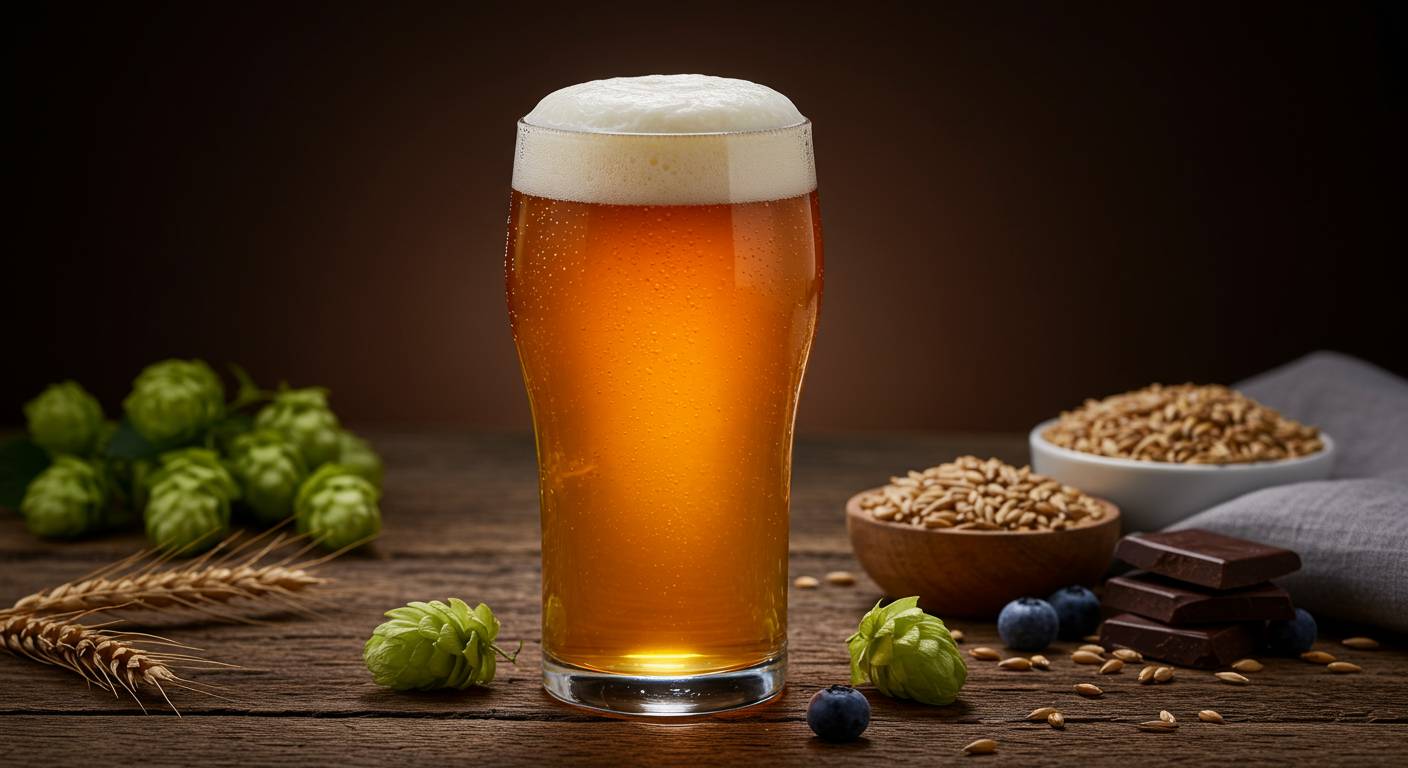
Hey there, beer enthusiasts and health-conscious readers! Ever found yourself feeling a bit guilty while enjoying that delicious craft brew? Well, today might be your lucky day. The relationship between craft beer and health is more complex than you might think, and there’s some fascinating science suggesting that your favorite IPA or stout might actually pack some surprising health benefits when consumed in moderation.
While most of us associate antioxidants with berries and green tea, the craft beer world harbors its own secret wellness potential. In this deep dive, we’ll explore how those carefully selected hops and malts contribute to craft beer’s antioxidant profile, what science really says about moderate beer consumption, and how to make smarter choices for both your palate and your health.
Whether you’re a dedicated beer aficionado or simply curious about balancing enjoyment with wellness, this article will shed light on the unexpected health dimension of quality craft brews. Let’s separate fact from fiction and discover if there’s truth behind the buzz about beer’s potential benefits!
Contents
1. The Shocking Science: Why Craft Beer’s Antioxidants Could Actually Be Good For You
When most people think about health drinks, craft beer rarely makes the list. However, recent scientific research suggests we might need to reconsider this perception. Craft beer, particularly those rich in hops and unfiltered varieties, contains surprising levels of antioxidants that could offer genuine health benefits when consumed in moderation.
Studies from the University of California have found that craft beers contain significant amounts of xanthohumol, a powerful antioxidant found in hops that has been linked to cancer prevention properties. Additionally, researchers at the University of Scranton discovered that darker beers like stouts and porters are particularly rich in flavonoids – compounds that help fight free radicals and may reduce the risk of heart disease.
Unlike mass-produced commercial beers, craft breweries like Dogfish Head and Sierra Nevada often use more hops and malted barley in their brewing process, which increases the concentration of these beneficial compounds. The natural fermentation process also creates B vitamins and prebiotics that support gut health.
Dr. Elizabeth Thompson, a nutritional biochemist at Boston University, explains: “The antioxidant content in some craft beers rivals that of red wine, which has long been celebrated for its heart-healthy properties. However, it’s crucial to emphasize that these benefits only apply when consumption remains moderate – typically defined as one drink daily for women and up to two for men.”
This doesn’t mean you should start drinking beer as a health supplement. The key word remains “moderation,” as excessive alcohol consumption negates any potential benefits and introduces serious health risks. Nevertheless, enjoying a quality craft beer occasionally might contribute positively to your antioxidant intake while supporting local breweries committed to traditional brewing methods and quality ingredients.
2. Craft Beer Benefits Revealed: What Your Doctor Isn’t Telling You About Antioxidants
While most health discussions about alcoholic beverages focus on their negative aspects, craft beer contains surprising nutritional components that deserve attention. Craft beers, particularly darker varieties like stouts and porters, contain significant levels of antioxidants similar to those found in red wine. These antioxidants, including flavonoids and phenolic compounds, may help combat oxidative stress in the body.
Research from the University of California has shown that craft beers, especially those made with high-quality hops and malts, contain xanthohumol, a potent antioxidant found exclusively in hops. This compound has demonstrated promising anti-inflammatory properties in laboratory studies. Additionally, unfiltered craft beers retain more B vitamins and minerals than their mass-produced counterparts.
What many healthcare professionals don’t emphasize is the potential cardiovascular benefit of moderate beer consumption. Studies published in the American Journal of Clinical Nutrition suggest that responsible consumption patterns may be associated with increased HDL (good cholesterol) levels. Sierra Nevada, Brooklyn Brewery, and Dogfish Head are examples of craft breweries that prioritize quality ingredients that maximize these beneficial compounds.
It’s crucial to understand that these potential benefits apply only to moderate consumption—generally defined as one drink per day for women and up to two for men. Excessive consumption negates any health benefits and leads to numerous health problems. Craft beer should be viewed as an occasional treat within a balanced lifestyle rather than a health supplement. Always consult your healthcare provider about how alcohol consumption may affect your specific health conditions before making dietary changes.
3. From Belly to Health: How Choosing the Right Craft Beer Can Boost Your Antioxidant Intake
Not all craft beers are created equal when it comes to health benefits. Dark ales, stouts, and porters typically contain higher levels of antioxidants compared to lighter beers. This is because these darker varieties use malts that have been roasted longer, creating compounds called melanoidins that function as antioxidants. Sierra Nevada’s Porter and Guinness Stout, for example, have been found to contain significant amounts of antioxidants in laboratory analyses.
The brewing process itself impacts antioxidant content. Craft beers that undergo less filtration retain more of the beneficial compounds from hops and barley. Many small-batch breweries like Dogfish Head and Stone Brewing prioritize ingredients and processes that preserve these natural components. Beers with higher hop content, particularly those using varieties like Cascade and Centennial, deliver more polyphenols – plant compounds with antioxidant properties that help combat cellular damage.
Fermentation duration also plays a role in developing antioxidant properties. Craft breweries that allow for extended fermentation periods often produce beers with greater complexity of flavor and increased antioxidant potential. Belgian-style ales from breweries like Allagash or Ommegang typically undergo longer fermentation, potentially resulting in higher levels of beneficial compounds.
While enjoying these potential benefits, moderation remains essential. The American Heart Association and most health professionals suggest limiting alcohol consumption to one drink daily for women and up to two for men. Pairing your craft beer choice with other antioxidant-rich foods like nuts, berries, and dark chocolate can create a balanced approach to incorporating these beneficial compounds into your diet while maintaining overall health priorities.
